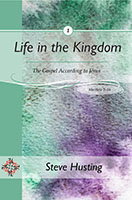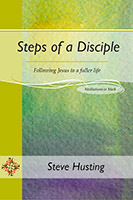At the coming of Jesus, God introduced something new. With the death, burial, and resurrection of the Christ, God creates a new covenant with believers that results in a clean conscience. The tenth chapter of Hebrews explains this feature of our salvation that many of us are unaware of, and so have let the shame of our past taint the present. We don’t have to let guilty thoughts from past wrongs paralyze us from moving forward. Let’s cover these verses in detail, because the words of Christ are still true: “the truth shall make you free.”
When the Hebrew of ancient times followed the annual Feast of Atonement in Israel, it was a reminder of sins committed, a day of solemnity, a time of shame. All the blood of bulls and goats offered according to the old covenant throughout the year did not remove the guilt of those sins:
But in those sacrifices there is a remembrance again made of sins every year. For it is not possible that the blood of bulls and of goats should take away sins. (10:3-4)
Though the sinner brought his sacrificial offerings to the priest according to the law throughout the year for individual sins, the Day of Atonement was an acknowledgement by God and the people that their sins were still in mind — they still felt guilty about them.
So a different kind of sacrifice was needed:
And every priest standeth daily ministering and offering oftentimes the same sacrifices, which can never take away sins: But this man, after he had offered one sacrifice for sins for ever, sat down on the right hand of God (10:11-12)
When a sinner turns to Jesus Christ, the Lamb of God which takes away the sin of the world, she receives a deep cleansing not enjoyed by the Israelites under the law. The good news gospel is that God forgives sin and sets us free from its power and shame.
God is not a bullock, sheep, or goat; the blood-shedding of mere animals therefore can’t result in the removal of our sins. They were not the ones disobeyed, after all. But through Jesus Christ God, the one we have offended through our unrighteous thoughts, deeds, intentions, and actions, came as a perfect, sinless human being. God offered Himself as a sacrifice of nobler blood, took on Himself the shame and guilt of the world, and bore the full punishment due the guilty.
When we do wrong, many of us feel the need to make it right by punishing ourselves in some way, perhaps by denying ourselves some good thing for a while. Young children sometimes mope around after their disobedience has been exposed until a parent administers discipline in love, then the child feels restored back to fellowship again, and harmony in the home is restored. Guilt has been dealt with a consequence; “mommy still loves me and doesn’t hold it against me;” life can go on now.
That’s the new covenant that we enter into through faith in Jesus Christ and His finished work on Calvary:
‘This is the covenant that I will make with them after those days,’ saith the Lord, ‘I will put my laws into their hearts, and in their minds will I write them; And their sins and iniquities will I remember no more.’ (10:16-17)
Jesus wants us to remember this covenant, this agreement with God, often, instructing us at Communion regarding the cup, “This is my blood of the new covenant” (Matthew 26:28). For to us who trust in God is given this covenant of peace with God. The one we wronged has not only astonishingly borne the full wrath of God for our sins, but has risen from the dead to afterward proclaim to us, “Peace be with you” (Luke 24:36).
When we come to God believing in Him, the blood cleanses us, and God promises not to hit us over the head with our past. He will not tell us, “After all you’ve done, why should I forgive you now?” How can He do that if He has chosen to forgive and forget? You’ve heard of those who “bury the hatchet,” as our American saying goes, but they leave the handle showing, ready to take it up again to shame the person into submission. Having been beaten into submission over and over, that person will not come to the other willingly. But it’s different with God, for scripture tells us that we can come boldly to Him as sinners:
Having therefore, brethren, boldness to enter into the holiest by the blood of Jesus (10:19)
Rather than come hesitantly, fearfully, expecting the glowering visage of a wrathful God, we come to a loving Father who receives us on behalf of His Son. We don’t approach wondering if God will receive us; we’re not to check our feelings to see if we are ready; and we’re not to wait until we’ve done enough deeds to punish ourselves — but come and enter His presence boldly as the verse proclaims. We have confidence that the blood of Jesus is enough to cover every sin thoroughly.
Let us draw near with a true heart in full assurance of faith, having our hearts sprinkled from an evil conscience, and our bodies washed with pure water. (10:22)
Having just sinned, we won’t exactly come to Him cheerfully, but we can come expecting acceptance. “Whoever comes to Me I will never cast out” (John 6:37). We come with the promise that God has provided a means to deal with our sins; the punishment His Son endured on the cross satisfies God of every debt (Isaiah 53:11). This covenant is enjoyed by all those who believe God for it. As always, we enter into every blessing through faith. If we don’t have a picture of a loving Father due to a bad parent’s example, then we will have a harder time coming to this place. But Jesus is enough; the Spirit can lead us there; God is greater than our past.
How shall we then live before this God who graciously sinks all of our sins into the deepest sea? We live according to the model of divine grace and forgiveness, which is the apostle Paul. I suspect that Paul through his influence had turned many of his countrymen away from the true worship of God and into the chains of legalism, in addition to the problems he wrote of in 1 Timothy 1:13. But so wonderfully did the Lord welcome him and bless him that he fully yielded to God, to serve Him not out of penitence for what he did, but from love and gratefulness.
Let us hold fast the profession of our faith without wavering; (for he is faithful that promised;) (10:23)
Paul held on to the faithfulness of God to keep His promise. He did not have to let the sins of the past torment him. Though we can recall our sins from time to time and they shame us, and the consequences of our sins in the lives we’ve hurt can make us cringe, we know that God is not the author of those thoughts. Satan is the accuser of our brothers (Revelation 12:10).
So with Paul we forge ahead in faith. We let God’s Word guide us, not feelings churned up from the past. Assured of a Father’s love, we reject dead works of penitential self-effort to pay for our sins. Like Paul, we forget the things that are past and press on to the high calling of God in Christ Jesus (Philippians 3:13-14).
Yes, shame comes unbidden to our minds from time to time. But that’s when we stand up to it with our shield of faith and say, “Away with you, specter of the past. Jesus owns this land now and I claim it for Him. You have no place here. Get out!” The past does not have to bind us in the chains of fear and shame anymore. We have found the truth of God’s love and of sin’s powerlessness, and it has made us free indeed to pursue God’s high calling for us.
Don’t let the crimes of the past prevent you from enjoying God’s love today. God promises a clear conscience to those who trust in Him. The blood of His Son is sufficient for all sins (1 John 1:9). The new covenant leads us into greater liberty of life with God.






